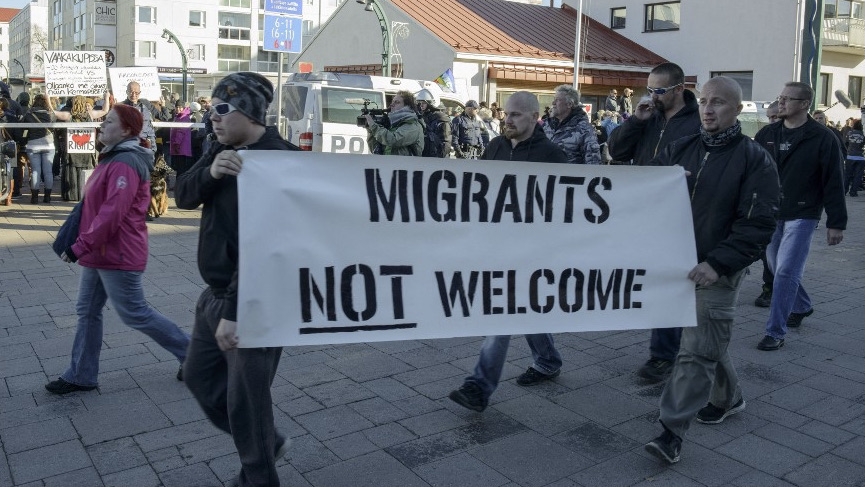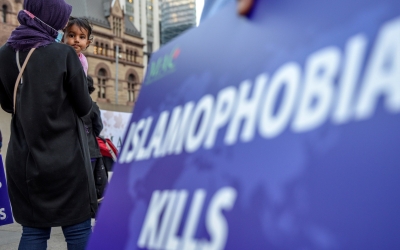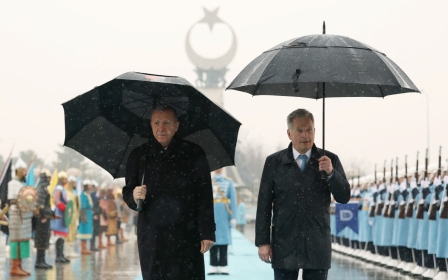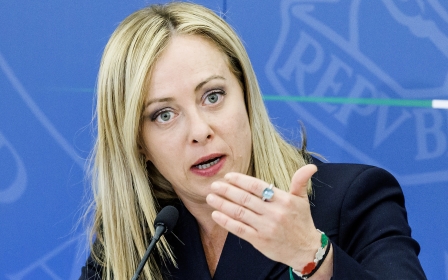Why Finland is set for its most right-wing government since the 1930s

For some minorities, particularly Muslims, Finland's April parliamentary election was confirmation that things could get worse before they got better.
The success of the radical-right Finns Party (PS), which secured second place with 20.1 percent of the vote after the conservative National Coalition Party's (NCP) 20.8 percent, did little to dispel such concerns.
The election results also reinforced the entrenchment of the radical right in the Nordic region, with openly hostile anti-Muslim parties in Sweden and Finland. Traditional left-wing parties, such as the Social Democrats (SDP), have embraced anti-Muslim policies and narratives to win elections, even in Denmark, which held elections in November.
The election in Sweden and Finland lay bare how much Nordic welfare state societies have changed in the face of growing social ills like inequality, racism and discrimination.
At a meeting in western Finland 10 years ago, I met Sanna Marin, the future leader of the SDP. My first impression was her unwavering resolve, which must have helped carry her far politically. In December 2019, aged 34, she became the world's youngest appointed prime minister.
New MEE newsletter: Jerusalem Dispatch
Sign up to get the latest insights and analysis on Israel-Palestine, alongside Turkey Unpacked and other MEE newsletters
While there was hope that Marin's charismatic leadership would carry the party to victory in last month's election, the SDP ended in third place with 19.9 percent of the votes, narrowly trailing behind the NCP and PS.
Marin announced shortly after the election that she would not stand for re-election as SDP leader. She also made public her separation from her partner, with whom she has a daughter.
While there is speculation that Marin could be appointed to a high-ranking position in the European Union, she will remain as one of the party's 43 MPs for the time being.
'Openly racist party'
Putting aside the suspicion of her political rivals for Marin being a woman and a young one at that, her government had its work cut out during its four-year tenure, from dealing with the Covid-19 pandemic to a war in Ukraine that changed the face of Europe and Finland.
Under Marin's leadership, Finland became Nato's 31st member. But accusations of fiscal mismanagement and an increase in the debt-to-GDP ratio from 2019-2023 to 73 percent from 64 percent helped her rivals in the election.
Although Marin's government did not fully address Finland's undocumented migrant situation - estimated at 3,000 people, 300 of whom are children - or significantly roll back all the strict immigration policies implemented by Prime Minister Juha Sipila's government (2015-2019), she will be remembered for refusing to form a coalition with the PS because, in her words, it is "an openly racist party".
While the Left Alliance and the Greens, two members of Marin's government, said they would not be part of a coalition with the PS, one of its coalition members, the liberal Swedish People's Party of Finland, is in government talks.
Its leader, Anna-Maja Henriksson, said she would not serve in a government that adopts PS policies. These include limiting foreign labour, undercutting international refugee agreements and human rights, undermining cooperation with the EU, cutting back on development assistance, and rolling back environmental initiatives to fight greenhouse gas emissions.
For the above reasons, some analysts are sceptical that National Coalition Party chairperson and prime minister-designate Petteri Orpo will succeed in forming a government with the PS.
The Swedish People's Party holds the key to the present government talks. If it pulls out of these negotiations, Orpo will have no choice but to turn to the SDP, which will not be as eager to cut public spending by €6bn ($6.46bn) as the PS. In the 200-seat Finnish parliament, the Eduskunta, the four parties engaged in government formation negotiations enjoy a slim majority with 109 MPs. The Swedish People's Party has 10 MPs.
Uncertainty factor
One of the big obstacles to Orpo's plans to form a new government is the PS's rigid stance on migration. Riikka Purra, the PS's chairperson, has made a number of promises to her followers, including substantially tighter immigration regulations, a near-ban on labour migration from outside the EU, declaring Islam incompatible with a white Finland, termination of the refugee quota programme, curtailing significantly the right to seek asylum and slashing development assistance.
Although, unlike the PS, Orpo's party may not overtly target Muslims and other vulnerable groups, both parties have similar views regarding asylum policy. There are, however, differences concerning labour migrants. While the National Coalition Party aims to ease labour migration to Finland, the PS is adamantly against it, despite chronic labour shortages in many sectors, jeopardising economic growth.
If the NCP successfully forges a coalition with its current allies, some analysts predict Finland will have its most right-wing government since the 1930s
The PS adds an uncertainty factor for a new government. Due to a leadership dispute, the party split into two groups in 2017 when it took part in a government for the first time. At that time, Orpo served as interior minister and minister of finance under the Sipila administration and was responsible for substantial cuts in the education and social welfare budgets as well as tightening asylum policy.
If the NCP successfully forges a coalition with its current allies, some analysts predict Finland will have its most right-wing government since the 1930s.
Teivo Teivainen, a professor of world politics at the University of Helsinki, said that directly comparing various eras and political parties can be problematic. However, he agreed that the new government could have the most anti-immigration agenda in a long time.
"Understanding how political parties share power in Finland," he said, "no party alone can dictate the government programme."
There are many unanswered questions and concerns regarding the creation of a new coalition in Finland. But one thing is certain: whatever emerges, it will be very different from Marin's government.
The views expressed in this article belong to the author and do not necessarily reflect the editorial policy of Middle East Eye.
Middle East Eye delivers independent and unrivalled coverage and analysis of the Middle East, North Africa and beyond. To learn more about republishing this content and the associated fees, please fill out this form. More about MEE can be found here.






